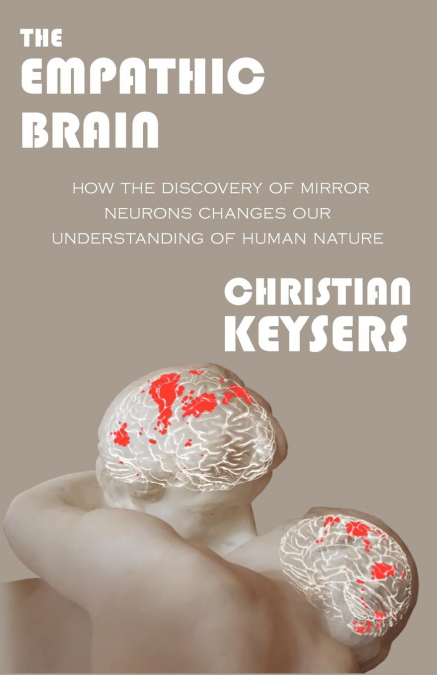
Christian Keysers
The ContentYour heart beats faster as you watch a tarantula crawl on James Bond’s chest in the movie Dr No, your hands sweat and your skin tingles under the spider’s legs. You feel scared, tense, and finally relieved when Bond manages to escape the danger. We are essentially empathic. But what is empathy? How does your brain enable you to feel so much of what 007 is feeling? How do you connect with people in real life, people you love or even strangers? In this book, you will visit leading labs to find your own answers. The journey starts where ’mirror neurons’ were discovered. The door of a lab in Parma, Italy, opens to reveal that your motor system not only controls your own body - it becomes automatically activated each time you see others move. A little later, you lie down on a bed and slowly move into the bore of a brain scanner in Marseille, becoming a subject in an experiment that will show how your own sensations and emotions are automatically triggered while you witness those of others. These experiments unravel the mirror in our brain that lets our own actions, sensations and emotions resonate with those of Bond and the people around us. By sharing their inner lives, we connect with them. We are hard-wired for empathy. By looking at autistic individuals and psychopathic criminals, by comparing men and women, by exploring empathy for robots and enemies, this book explores the multifaceted nature of empathy and evidences both its power and limits. Science begins to reveal the wisdom of why so many of the world’s religions command 'do unto others as you would have them do unto you.'PraiseIf anyone can write about the brain mechanisms of empathy, Keysers is the man. A page turning read. A grand perspective on many aspects of the empathic brain. He explains why we should re-think morality, education and ethics in light of the way we have evolved to resonate with each other. A book ahead of the game. A great authoritative read. (Prof. Bruce Hood, 2011 Royal Institution Christmas Lecturer, Bristol University for The Psychologist)Christian Keysers has the combined skills of a hard-core animal neuroscientists, the talents of a human brain imager, and the sophistication of a theoretician. This book takes us on a critical journey of the discovery of mirror neurons of which he was a part, our understanding of empathy, imitation, and language. Though many have written about mirror neurons, this book outshines them all. If you want an honest account of mirror neurons, how they work, and what we can learn from them, read Keysers’ book (Prof. Mark Hauser, Harvard University, bestselling author of ’Moral Minds’).A masterful description of how mirror neurons turn us into social beings (Prof. Dick Swaab, bestselling author of ’We are our brain’).About the AuthorDr Christian Keysers’ work has been seminal for the scientific study of empathy. Born in 1973, his work has led to publications in the most prominent scientific journals and has made him one of the youngest people to attain the rank of Full Professor. His capacity to explain his science to the wider audience earned him the Marie Curie Excellence Award. He now leads a lab together with his wife at the prestigious Netherlands Institute for Neuroscience of the Royal Dutch Academy of Arts and Sciences in Amsterdam. He is a Full Professor at the UMCG and a frequent Visiting Professor at the California Institute of Technology. Outside of the laboratory, his wife Valeria and his daughter Julia are teaching him why empathy is such a gift. 3